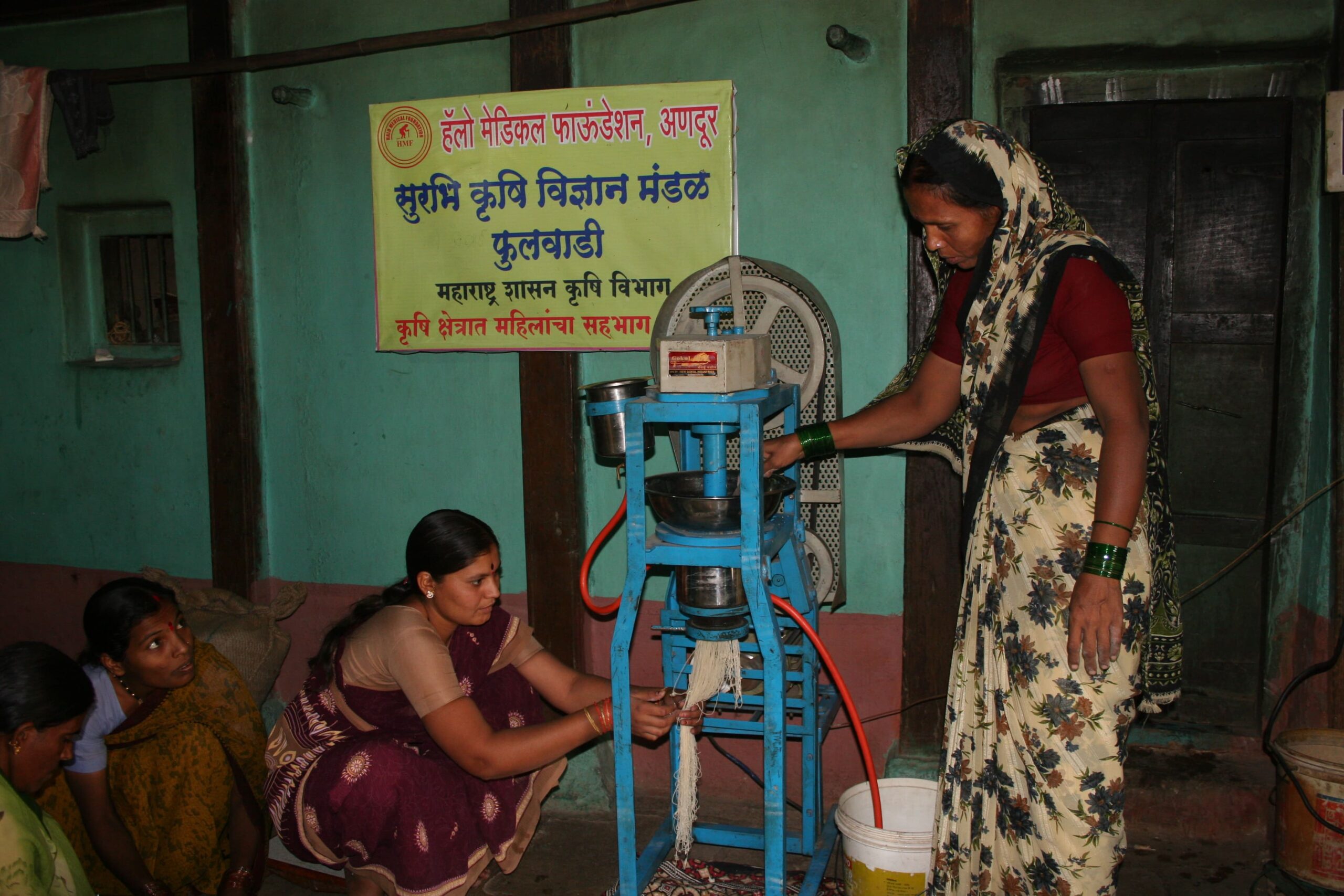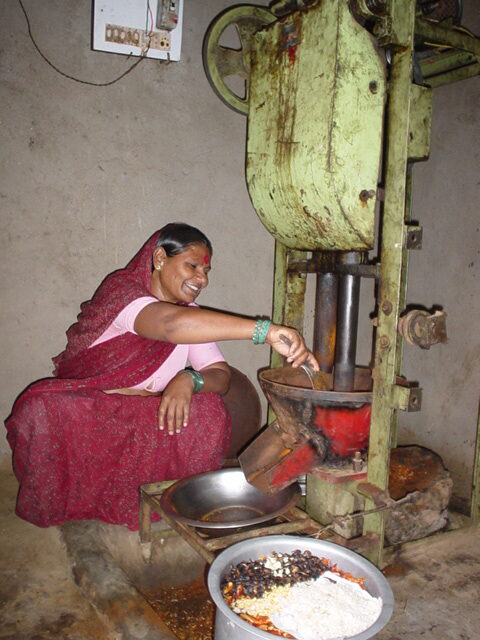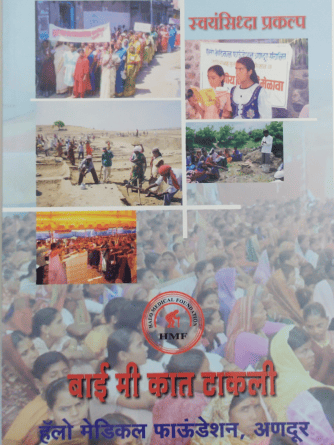The Sanjivani Mahila Bachat Sangh (Self-help Groups Federation): Women’s health and beyond: 1995 to 2010
The idea of creating a Federation of SHGs stemmed from the urgent need to provide a robust platform for women across the project area to address several issues that directly or indirectly affected women’s health adversely. In 1996, HMF trained the Village Health Workers (Bharat Vaidyas) to form self-help groups (SHGs). Initially HMF started with 70 SHGs and in a period of six years it supported 500 SHGs in Osmanabad (renamed as Dharashiv) district. This programme to empower women in SHGs, which among other benefits, helped break the silence against domestic violence. HMF withdrew support in 2010 because the SHGs and their federation were empowered to continue the mission.
The Self-Reliant Women’s Project – Swayamsidhha (Jan 2001-Dec 2005)

The Swayamsidhha project aimed at empowering SHG women members to:
- Improve their health,
- Develop an understanding about gender equality, women’s rights and laws
- Provide them better livelihood and income generating opportunities.
- Reduce drudgery that women faced in household daily chores for their families.
- Promote clean environment
Reach – The Project covered 22 villages of the Tuljapur and Lohara blocks in the Dharashiv (Osmanabad) district.

Initially, women faced opposition from their husbands and in-laws regarding participation in project activities. However, through mutual emotional support and encouragement among SHG women, they overcame this resistance. Many women started small enterprises; for instance, a woman who previously produced liquor transitioned to run a grocery shop, another purchased a van for running a transport service, while another woman purchased a machine to make shevai (Indian noodles) on a large scale.
They began connecting with banks and cooperatives for seeking loans. They began participating in the village meetings – gramsabhas – and voiced their concerns and opinions. They connected with other resources such as the Bharat Vaidya (village health workers group of HMF) for health issues, the Savali Counselling Centre of HMF for domestic violence issues.
They participated in project activities for promoting clean environment that included – tree planting, learnt water recharging techniques and created water storage ponds and reservoirs/absorption pits.
The project undertook special activities for reducing drudgery of women in housework. These included –
- building Dhobi katta or spaces for washing clothes where women could easily access water.
- providing appliances that would decrease women’s labour in household work snf for running small businesses (such a flourmill, pounding machines etc.) .
- using biogas instead of wood for smokeless cooking.
- training to develop their own kitchen garden using waste water
- creating awareness/ information on nutritious food.
- building toilets – in 90 locations in the 22 project villages
Other project activities included – adolescent health education and selfcare, libraries for women, conducting mahila-melawas (village women’s conventions), youth conventions, conducting campaigns against child marriage and for alcohol-free villages.
The project was financially support by CIDA through the NGO BAIF.
